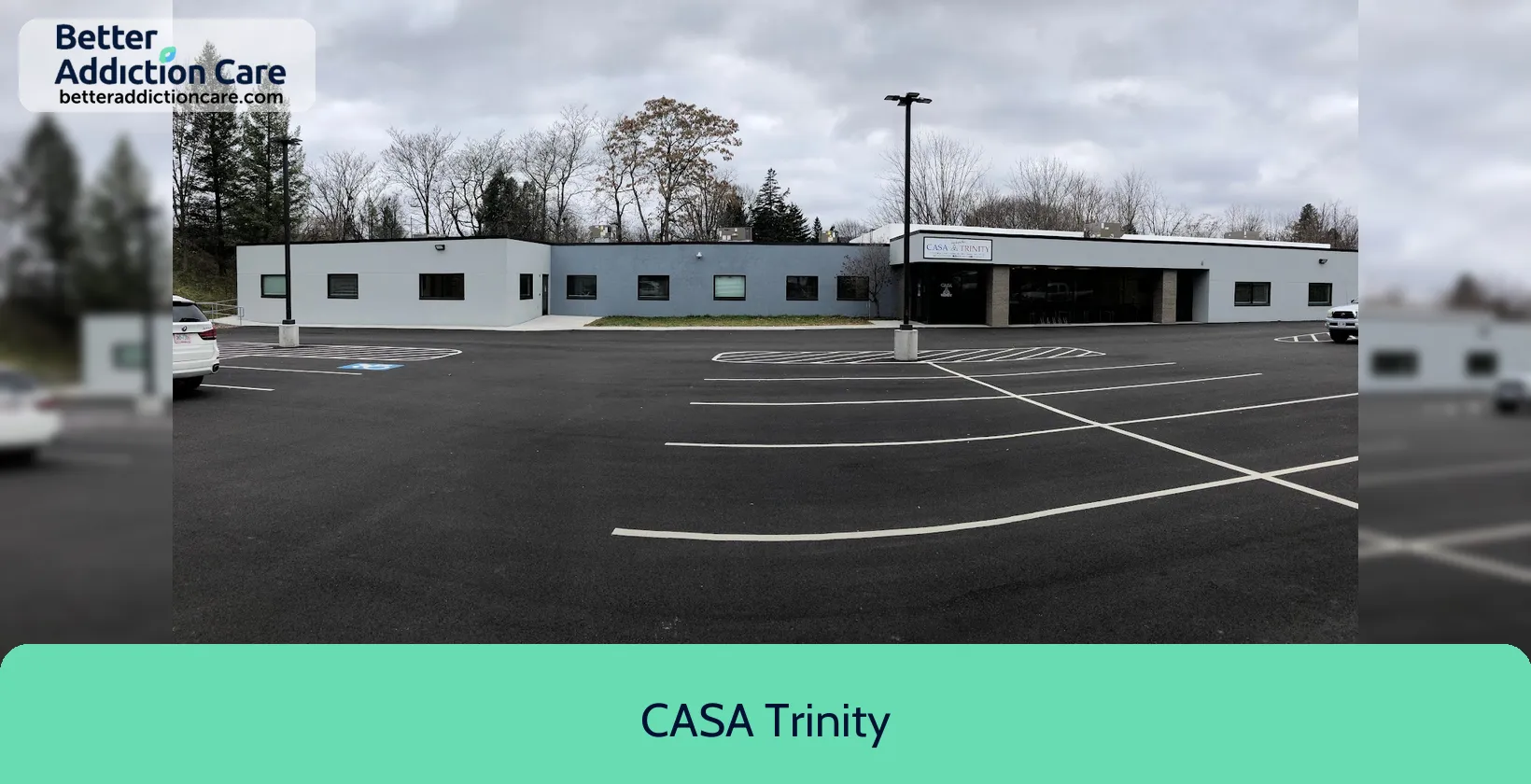
Overview
New Dawn STARS is a substance abuse treatment center for people seeking treatment near Chemung County. As part of their treatment modalities for recovery, New Dawn STARS provides cognitive behavioral therapy, substance use disorder counseling, and trauma-related counseling during treatment. New Dawn STARS is located in Elmira, New York, accepting cash or self-payment for treatment.
New Dawn STARS at a Glance
Payment Options
- Cash or self-payment
- Medicaid
- Medicare
- Private health insurance
- Aetna
Assessments
- Screening for tobacco use
- Comprehensive substance use assessment
- Interim services for clients
- Outreach to persons in the community
- Screening for mental disorders
Age Groups
- Seniors or older adults
- Young adults
- Adults
- Seniors
Ancillary Services
- Case management service
- Integrated primary care services
- Domestic violence services, including family or partner
- Early intervention for HIV
- Mental health services
Highlights About New Dawn STARS
7.60/10
With an overall rating of 7.60/10, this facility has following balanced range of services. Alcohol Rehabilitation: 8.00/10, Drug Rehab and Detox: 8.15/10, Insurance and Payments: 6.67/10, Treatment Options: 7.58/10.-
Drug Rehab and Detox 8.15
-
Alcohol Rehabilitation 8.00
-
Treatment Options 7.58
-
Insurance and Payments 6.67
Accreditations
The Joint Commission:

The Joint Commission accreditation signifies that a facility has met rigorous standards of excellence in patient care, treatment, and safety. It assures individuals and healthcare professionals that the accredited facility provides high-quality, evidence-based care for addiction and mental health issues, fostering trust and confidence in their services.
Treatment At New Dawn STARS
Treatment Conditions
- Mental health treatment
- Alcoholism
- Substance use treatment
- Co-occurring Disorders
Care Levels
- Hospital inpatient/24-hour hospital inpatient
- Hospital inpatient treatment
- Aftercare
Treatment Modalities
- Cognitive behavioral therapy
- Substance use disorder counseling
- Trauma-related counseling
- Smoking/vaping/tobacco cessation counseling
- Group counseling
Ancillary Services
Additional Services
- Pharmacotherapies administered during treatment
- Mentoring/peer support
- Breathalyzer or blood alcohol testing
Special Programs
- Clients with co-occurring mental and substance use disorders
- Clients who have experienced trauma
Get Help Now
Common Questions About New Dawn STARS
Contact Information
Other Facilities in Elmira

7.68

6.97
DISCLAIMER: The facility name, logo and brand are the property and registered trademarks of AMS - Family Services of Chemung / Eastside Family Medicine, and are being used for identification and informational purposes only. Use of these names, logos and brands shall not imply endorsement. BetterAddictionCare.com is not affiliated with or sponsored by AMS - Family Services of Chemung / Eastside Family Medicine.
